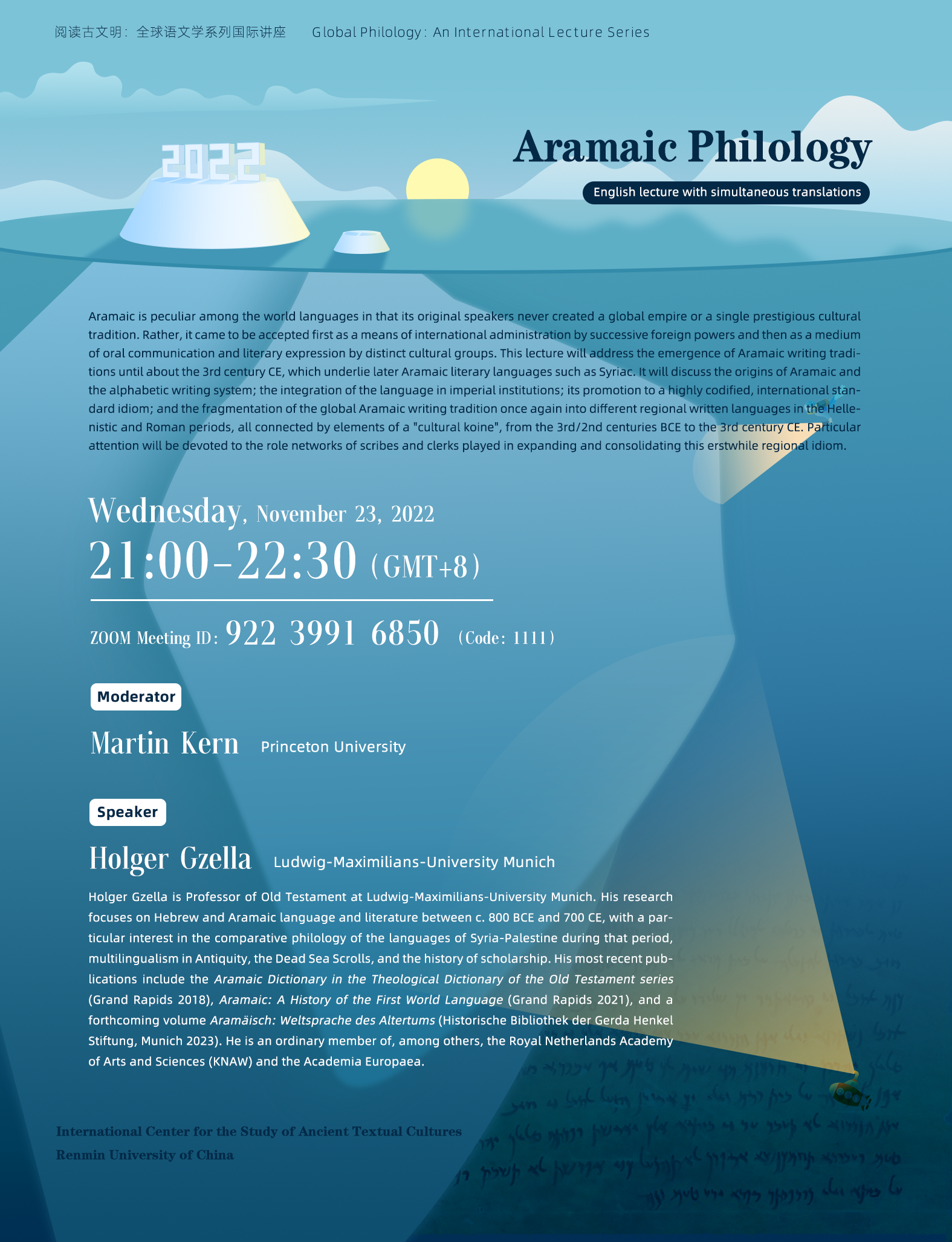[Upcoming] Aramaic Philology
发布时间:2022-11-22Global Philology: An International Lecture Series

Title: Aramaic Philology
Speaker: Holger Gzella, Ludwig-Maximilians-University Munich
Moderator: Martin Kern, Princeton University
Time: 21:00-22:30 (GMT+8), November 23, 2022.
Zoom Meeting ID: 922 3991 6850 (Code: 1111)
Zoom Link:
https://zoom.us/j/92239916850?pwd=MnhBaGxZY1ZpQ3BGMWovRHR1U0h2QT09
Introduction to the Speaker:
Holger Gzella is Professor of Old Testament at Ludwig-Maximilians-University Munich. His research focuses on Hebrew and Aramaic language and literature between c. 800 BCE and 700 CE, with a particular interest in the comparative philology of the languages of Syria-Palestine during that period, multilingualism in Antiquity, the Dead Sea Scrolls, and the history of scholarship. His most recent publications include the Aramaic Dictionary in the Theological Dictionary of the Old Testament series (Grand Rapids 2018), Aramaic: A History of the First World Language (Grand Rapids 2021), and a forthcoming volume Aramäisch: Weltsprache des Altertums (Historische Bibliothek der Gerda Henkel Stiftung, Munich 2023). He is an ordinary member of, among others, the Royal Netherlands Academy of Arts and Sciences (KNAW) and the Academia Europaea.
Lecture Introduction:
Aramaic is peculiar among the world languages in that its original speakers never created a global empire or a single prestigious cultural tradition. Rather, it came to be accepted first as a means of international administration by successive foreign powers and then as a medium of oral communication and literary expression by distinct cultural groups. This lecture will address the emergence of Aramaic writing traditions until about the 3rd century CE, which underlie later Aramaic literary languages such as Syriac. It will discuss the origins of Aramaic and the alphabetic writing system; the integration of the language in imperial institutions; its promotion to a highly codified, international standard idiom; and the fragmentation of the global Aramaic writing tradition once again into different regional written languages in the Hellenistic and Roman periods, all connected by elements of a "cultural koine", from the 3rd/2nd centuries BCE to the 3rd century CE. Particular attention will be devoted to the role networks of scribes and clerks played in expanding and consolidating this erstwhile regional idiom.